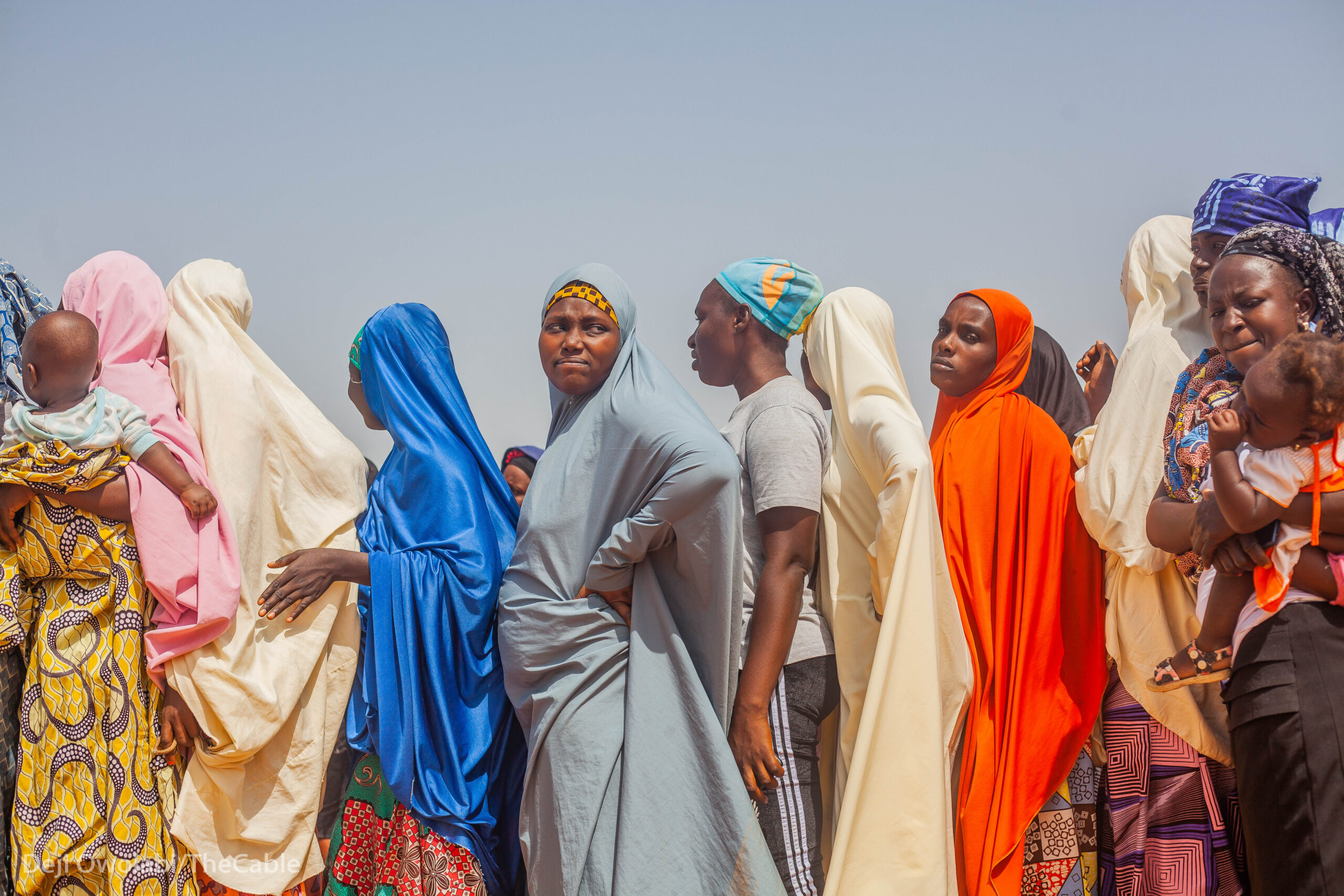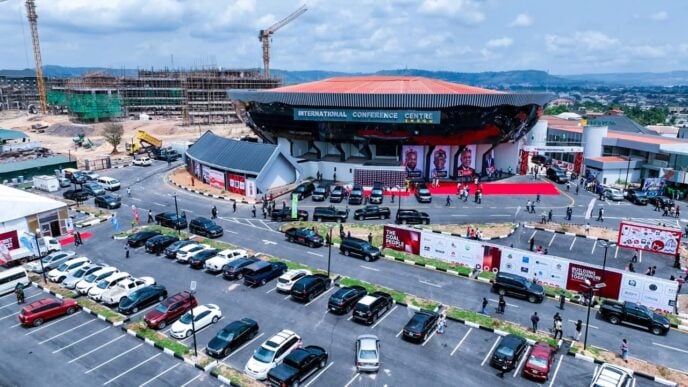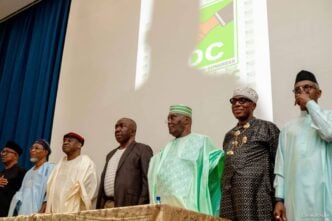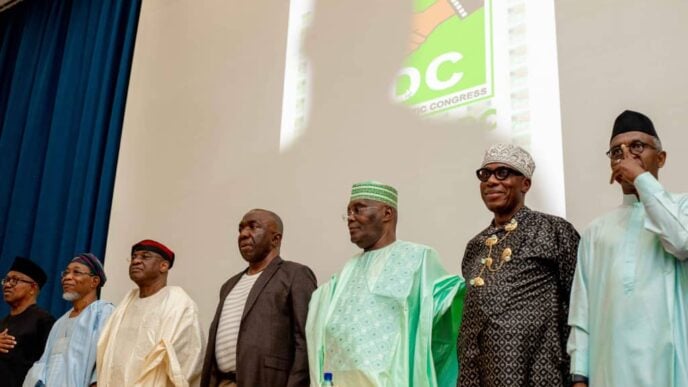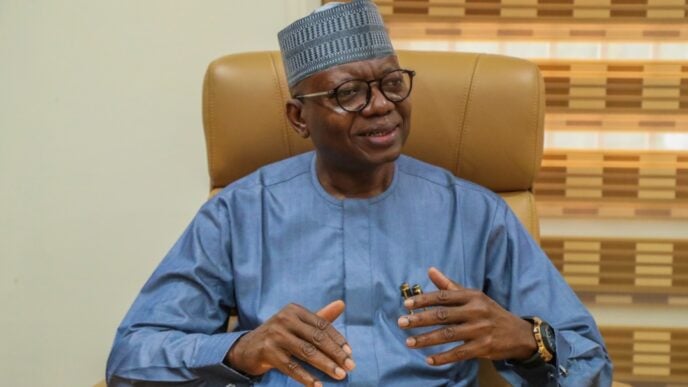IDP camp in Borno
BY OSAMWONYI OMOZUWA
As a researcher who has cried while investigating the lived experiences of internally displaced persons (IDPs) in the north-east, I am elated by the recent passage of the Kampala Convention bill by both chambers of the national assembly.
It is imperative to salute the prescience and people-centric leadership of the deputy speaker of the house of representatives, Rt Hon. Benjamin Kalu, CFR. His sponsorship of the Kampala Convention bill is salutary. It takes courage, vision, and commitment to successfully push a legislation like this through the multi-partisan corridors of the national assembly.
It is a well-known fact that millions of Nigerians have been displaced from their homes by conflict, terrorism, communal clashes, and natural disasters. For years, some displaced communities have lived in precarious conditions, largely forgotten and underserved. Camps have become their reluctant homes. The narratives of their subhuman experiences encapsulate subthemes like inadequate shelter, poor sanitation, sex for food, harassment, re-victimisation, limited access to healthcare, education, and sustainable social protection schemes, as well as children growing up without basic needs and endangered by aspirational poverty.
Advertisement
The ordeals of IDPs are a symptom of an ethical pathology that mocks our democratic ethos, religious pedigree, and Afrocentric value of “I am because we are.” It seems to me that the only camp that does not arouse pathos is St. Theresa’s IDP Camp in Adamawa, which houses about 4,700 persons.
Displacement erodes people’s dignity and sense of belonging. It exacerbates poverty, fuels cycles of violence, and erodes the social cohesion essential for Nigeria’s stability and development. The lived experiences of IDPs are a humanitarian crisis that threatens the ethical foundation of a just and progressive society.
Despite the enormity of this challenge, Nigeria’s response was fragmented and insufficient. There was a glaring lack of a wide-ranging legal framework to protect IDPs and to coordinate effective humanitarian and development responses. This gap left vulnerable populations at the whims of inadequate policies, inconsistent funding, weak institutional support, self-serving NGOs, and debauched public servants.
Advertisement
Given the foregoing, the passage of the African Union Convention for the Protection and Assistance of Internally Displaced Persons (commonly known as the Kampala Convention) is a giant step towards a more inclusive and egalitarian society. Adopted by the African Union in 2009, the Kampala Convention is a treaty that establishes binding obligations for member states. It aims at preventing displacement, protecting the rights of IDPs, and ensuring humanitarian assistance and durable solutions.
Though Nigeria signed the Convention in 2009, an absence of domestic legislation to enforce its provisions undermined its impact. With its domestication, there is a legal basis for coordinated, sustainable, and rights-based responses to internal displacement.
The bill’s 46 clauses address key areas: Prevention of displacement; protection and assistance to IDPs; promotion of durable solutions, including resettlement and reintegration; and elimination of drivers of displacement.
Kalu’s ability to build consensus around such a sensitive issue is commendable. He has shown that with determination and principled leadership, Nigeria can rise to meet its humanitarian obligations and honour its international commitments. His efforts show that internal displacement is beyond a humanitarian issue; it is a national challenge that requires urgent legal reform. His stewardship of the bill should spur other lawmakers to proactively engage with human rights and social justice issues affecting the most vulnerable.
Advertisement
It is worth noting that the deputy speaker once announced that about $10 billion was saved from subsidy removal in 2023. The enormity of the saved money underscores the need for equitable re-allocation of public resources. The passage of the Kampala Convention bill is an opportunity for the federal government to channel part of these savings into structured programmes that address displacement more effectively. Reliance on ad hoc and emergency interventions will not advance the lofty objectives of the Kampala Convention.
The economic cost of displacement is enormous. It drains public funds, disrupts productive activities, erodes the viability of local markets, and undermines development efforts. More critically, the human cost is incalculable. By investing in the protection and reintegration of IDPs, Nigeria will fulfil its moral imperative and create conditions for lasting peace and economic revival in some of its most fragile regions.
Failure to endorse this bill would undermine Nigeria’s standing within the African Union and the international community. It will also betray the millions of displaced Nigerians who endure hardship and uncertainty.
The baton has now been passed to President Bola Tinubu. Having demonstrated visionary leadership in other areas of governance, the President’s signature on the Kampala Convention Bill would be a powerful affirmation of Nigeria’s commitment to human rights and social justice. Signing it will provide government agencies, civil society, and international partners with the needed legal backing to implement coordinated strategies that respect the dignity and rights of IDPs.
Advertisement
Once signed into law, there will be improved data collection on displacement, enhanced protection mechanisms, and strengthened support for IDPs to reclaim their lives. It will also empower local governments and communities to engage meaningfully in preventing displacement and addressing its root causes.
However, legislation alone is not a panacea. It should be accompanied by sustained political will, adequate funding, capacity building, and partnerships among government, civil society, and the private sector. Monitoring and accountability frameworks must be established to ensure that the law improves the lives and livelihoods of income-insecure Nigerians, particularly victims of displacement.
Advertisement
Dr Omozuwa can be reached via [email protected]
Advertisement
Views expressed by contributors are strictly personal and not of TheCable.
